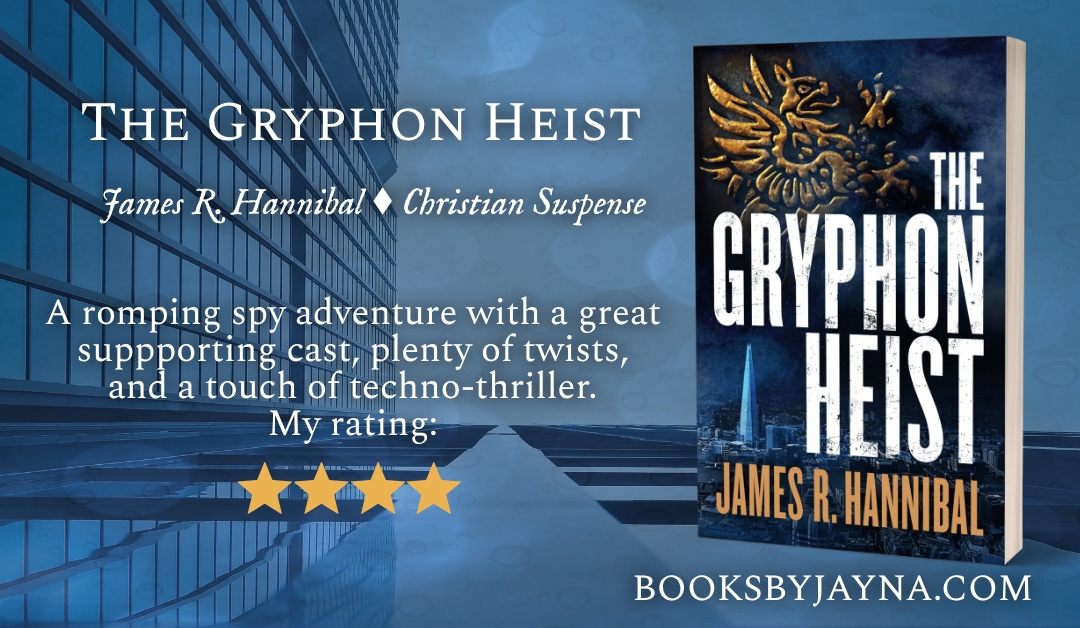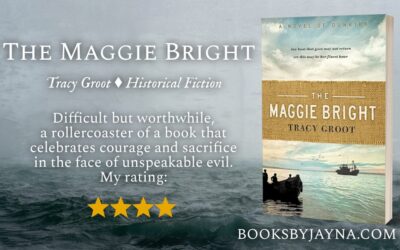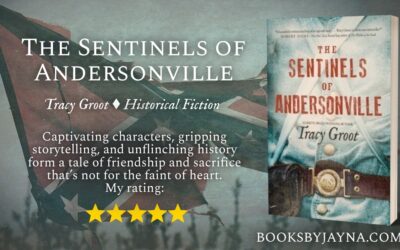Christian Book Reviews & Updates
from Jayna Baas
Looking for good Christian book reviews? Find new announcements and book recommendations from Jayna Baas or subscribe for updates. You’ll also find occasional reviews of great classics, worthwhile secular fiction, or helpful nonfiction. Check out Jayna’s reading list on Goodreads for even more Christian book reviews.

Book Review of The Gryphon Heist by James R. Hannibal
A romping spy adventure with a great supporting cast, plenty of twists, and a touch of techno-thriller. My rating: ★★★★☆ The first time I read this book, I was just trying to figure out what in the world—or should I say, what in the mesosphere—was going on. Since then, I’ve read it twice more just for...
Join Jayna Baas’s email list to receive monthly book recommendations, plus Christ-centered encouragement, author news, and more.
More Reviews & Updates
Book Review of El Dorado by Baroness Emmuska Orczy
A battle of wits and wills and a lesson of love and loyalty, all in inimitable Pimpernel style. Note: Secular author. My rating: ★★★★☆ Sometimes a girl just gets in a mood for another Scarlet Pimpernel adventure. Time for a reread of a classic! Much of this story centers around Armand, but we still get plenty...
Book Review of The Lost Lieutenant by Erica Vetsch
A fun marriage-of-necessity story with a sweet romance, relatable characters, and a dash of intrigue. My rating: ★★★★☆ Regency romances are not my typical cup of Earl Grey. And honestly, I might not have picked this one up if I had realized just how much of a romance it was. The back cover description seemed...
Book Review of Until We Find Home by Cathy Gohlke
A lovely novel with wonderful characters and a richly detailed look at the English home front of WWII. My rating: ★★★★☆ This was a lovely read and is shaping up to be a lovely reread as well. So many wonderful characters and so much historical detail! Wonderful characters Some readers saw Claire as...
Older Posts
Book Review of The Maggie Bright by Tracy Groot
Difficult but worthwhile, a rollercoaster of a book that celebrates courage and sacrifice in the face of unspeakable evil. My rating: ★★★★☆ Where to begin? I couldn’t stop reading this book, because I had to know what happened before I went to bed. I had to stop reading this book, because I was afraid of what...
Book Review of Secrets of the Revolution by Megan Soja
Sweet romance, rich history, and biblical faith bring early Boston to life. My rating: ★★★★★ Megan Soja has given readers another sweet, faith-filled, historically authentic story of Boston on the eve of the American Revolution. The history really comes alive, and I wasn’t surprised to read the author’s note...
Book Review of The Sentinels of Andersonville by Tracy Groot
Captivating characters, gripping storytelling, and unflinching history form a tale of friendship and sacrifice that’s not for the faint of heart. My rating: ★★★★★ I absolutely love the characters, dialogue, and narrative style in this book. It’s the sort of book I have to force myself to slow down and savor....







